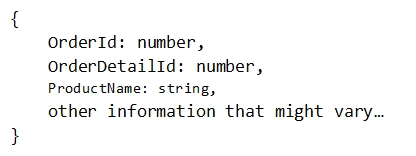

Note: This question is part of a series of questions that present the same scenario. Each question in the series contains a unique solution that might meet the stated goals. Some question sets might have more than one correct solution, while others might not have a correct solution.
After you answer a question in this section, you will NOT be able to return to it. As a result, these questions will not appear in the review screen.
You have a container named Sales in an Azure Cosmos DB database. Sales has 120 GB of data. Each entry in Sales has the following structure.
The partition key is set to the OrderId attribute.
Users report that when they perform queries that retrieve data by ProductName, the queries take longer than expected to complete.
You need to reduce the amount of time it takes to execute the problematic queries.
Solution: You increase the Request Units (RUs) for the database.
Does this meet the goal?
Alekx42
4 years agomemo43
4 years agohoangton
4 years agosuman13
4 years, 2 months agoPairon
4 years, 1 month ago